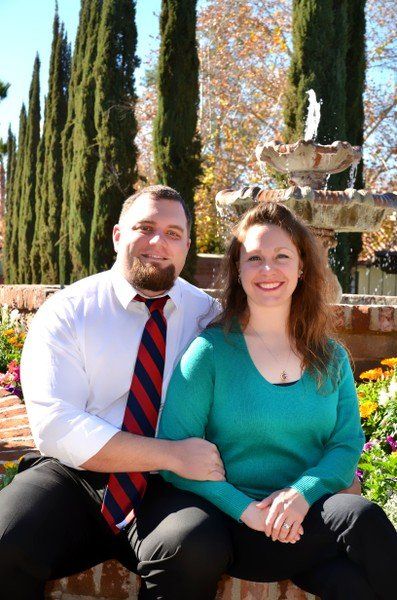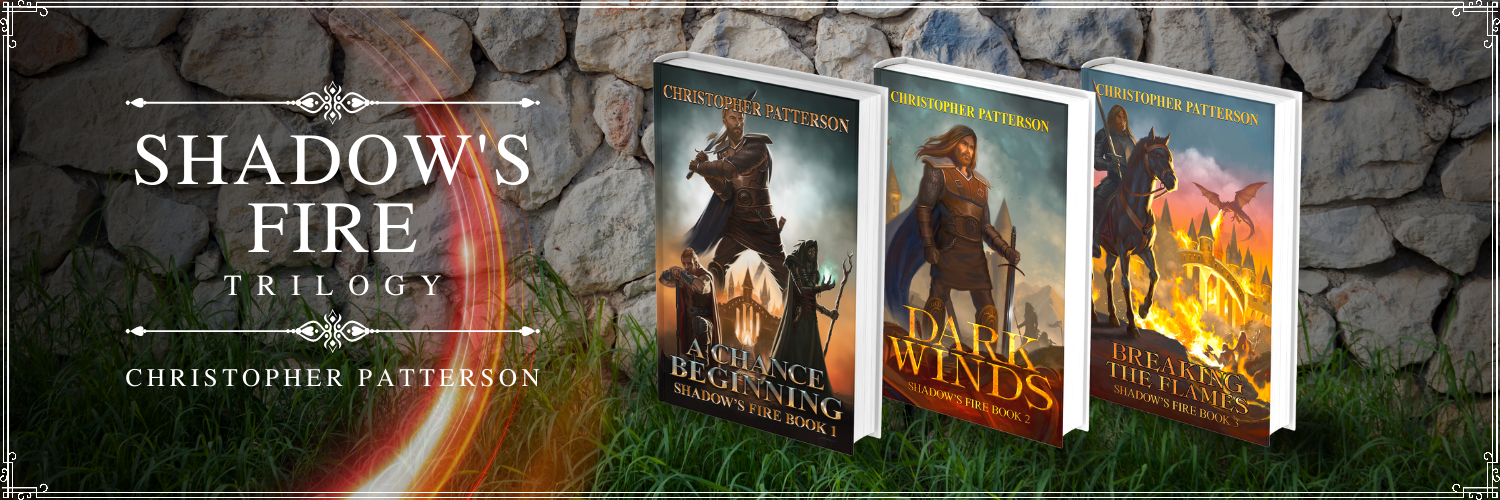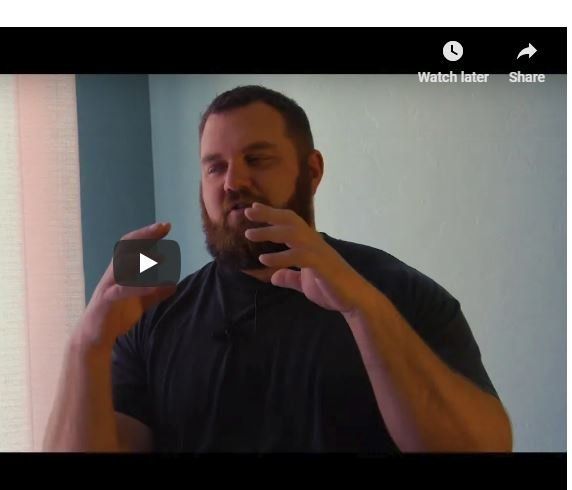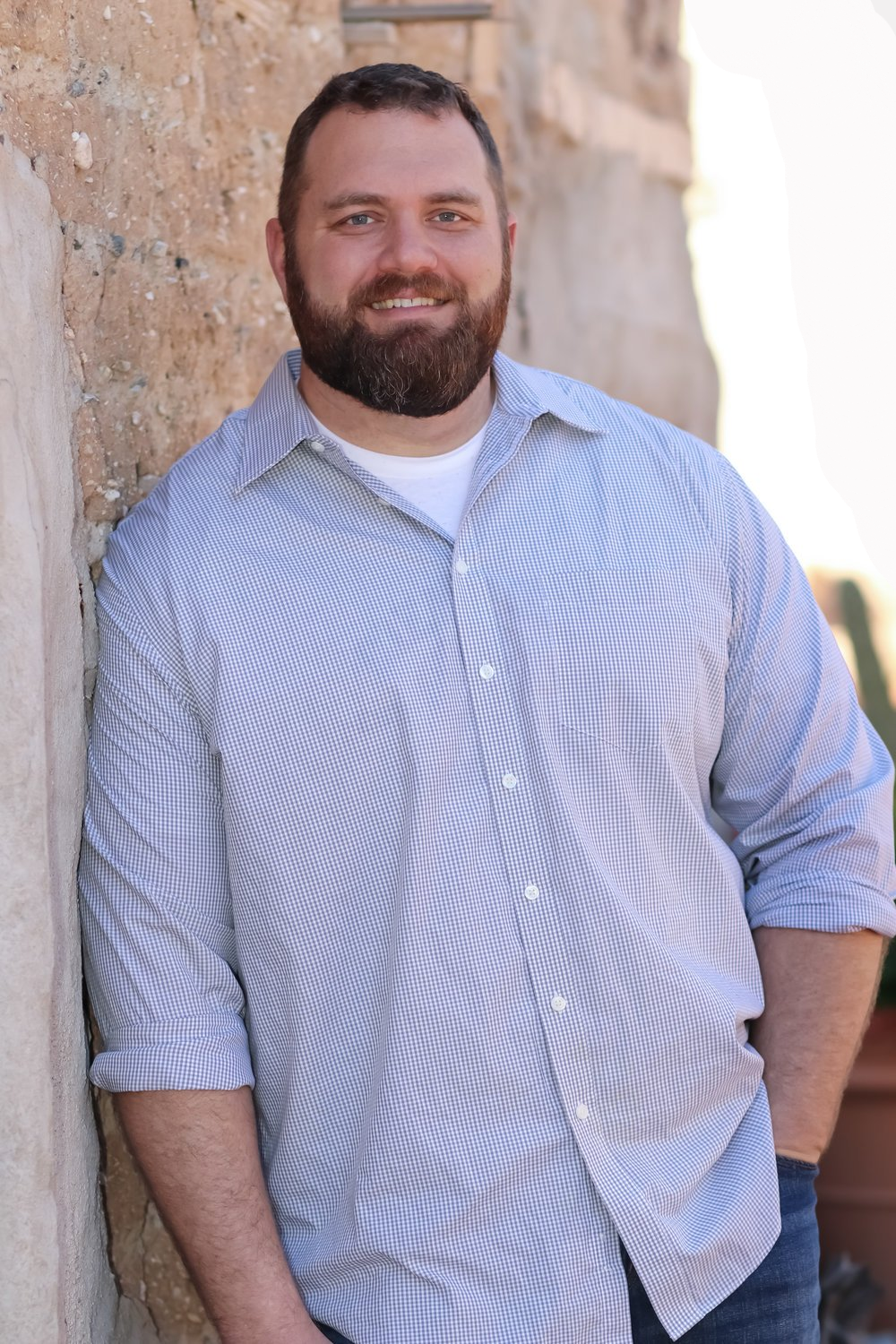Anyone can be a Writer
Mystery surrounds writing—all of the arts, really. It seems to be weird dichotomy when people learn or find out that you’re a writer, especially the author of a book, let alone a series of books. They are almost in awe, super excited for you, and can’t believe that someone could actually do such a thing. But then, they are critical. How do you make any money? Do you live on rice and beans? What’s your real job? I tend to focus on the awe and excitement.
People are always enthusiastic and happy for me when they find out I am an author. Everyone always says the same things: “How amazing.” “How do you do that?” “I could never write a book.” “I’m not creative.” “I wish I had your creativity.”

Aspiring Authors
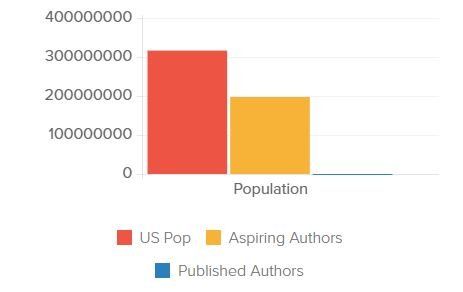
Sacrifice and Hard Work

I am very appreciative of the compliments. Trust me, I am more appreciative than many people might think. I try to stay as humble as possible. Humility produces wisdom, after all, even though I am very proud of being an author and the accomplishment that it represents. I do recognize the hard work and the time and the sacrifice that goes into writing book. I live it. But what amazes me the most is how quickly people are to discount themselves, put themselves down, and defeat themselves before they have even tried something. I see it in sports all the time.
As a wrestling and football coach, I experience kids giving up before they even give themselves a chance. It’s too hard. It’s too time consuming. They just don’t have natural ability. Whatever the excuse, they give up before ever getting started. I didn’t realize that same trend in today’s society applied to the arts as well until I officially became a published author. And all the while, the thing I continue to say to myself is, “Anyone can do this.”
I truly believe that. Like I said, I’m extremely grateful for the congratulations and admiration. But really, anyone could do this. I don’t say this to take away from my own creativity or hard work, but one of our mottos on our wrestling team—and one of my mottos in my own life—has always been, “Hard Work will always beat talent that doesn’t Work Hard.”
Define You
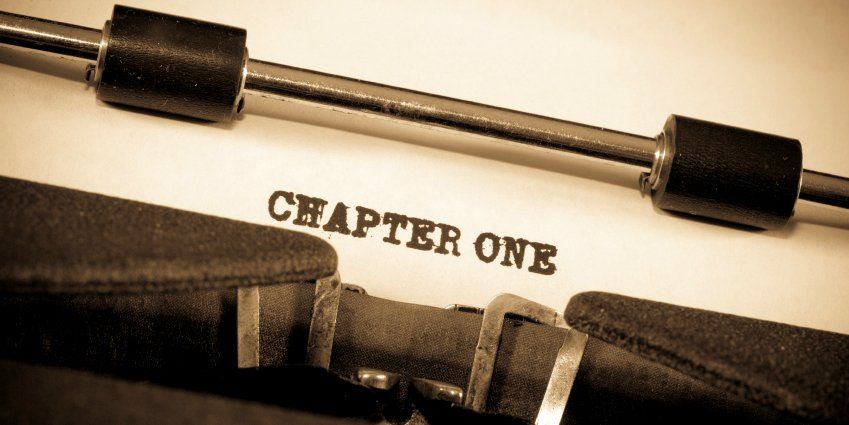
Clearly, not everyone wants to be a writer. So, this is not to say that everyone should be a writer, or that everyone wants to be a writer. This is to say, if you want to be a writer, you can be.
First, let’s define what kind of writer you want to be. That will, of course, dictate what course you take with your writing. I once attended a writing conference put on by Writer’s Digest and the presenter gave us three different types of writers and asked us to decide which one we are.
1. The first type of writer is the writer that simply wants to leave a legacy. This is the person who wants to leave memoirs to their family, create a family tree, or simply get their thoughts onto paper and see it as a book. This writer doesn’t care about sales. This writer doesn’t even care about how many people see their book. It’s all about the accomplishment of writing a book.
2. The second type of writer is the writer who wants to spread a message. This is the writer that has something to say, something important to convey to the world, or a certain group of people. They have experienced something that others have experienced, they have information on important social topics, or they simply want to touch people in a positive manner. This writer does care about how many people see and read their book, but they don’t care about sales. They didn’t write the book for sales. They wrote the book to send a message, tell a tale, etc. They don’t care about how much they make, just how many people read their book.
3. The third type of writer—and the type of writer I am—is the writer who wants to make a living from their writing. They want people to read, and pay, for their work and craft. Now, there is nothing shameful for wanting to make money from your craft. Most authors still have a great story to tell, and they want people to read it. They just want to make money from it as well.

Committing to Commitment
“Desire is the key to motivation, but it’s determination and commitment to an unrelenting pursuit of your goal - a commitment to excellence - that will enable you to attain the success you seek”— Mario Andretti
So which kind of writer do you want to be? That’s the first step in this writing process. Next, you have to commit. What do I mean by commit? Commit some time—not a ton. Commit some effort. Possibly commit some money—again, not a whole lot. Commit to actually writing your story, whatever that might be. I think—no, I know—so many things don’t get done in our society simply because people won’t commit to something. Fear. Laziness. Other obstacles. Past failures. Whatever it is, you have to commit to writing your story.
What's Your Story
So, what’s your story? It’s interesting how sometimes the worst advice we get comes from our educators. Now, I say that with great trepidation, since I am, myself, a teacher. And, I have received some phenomenal advice from some fantastic teachers and professors. But, when I was in college and studying creative writing, I had several professors suggest that we write about what is commercially desired. If you want to make money, you need to look at what the market desires and then write that.
What terrible advice. From an economic standpoint, of course you would want to provide what the market wants, but you can do that and still write what you want to write about. People will be able to tell if you’re not writing what you’re passionate about. They can tell when you are, for lack of better terms, BS-ing them. Write what you are passionate about.
My Story
I love fantasy. I grew up reading fantasy and sci-fi, watching fantasy and sci-fi, playing fantasy and sci-fi games. I also love history. I knew that if I ever wrote anything, it would be fantasy, historical fiction, or a combination of the two. I have written contemporary fiction short stories—mostly for my creative writing classes in college. They’re good. I’ve gotten pretty decent feedback on them. But it’s not what I love. I have a hard time pouring heart into those stories. To be successful at anything, you have to be passionate about it, right? If you are a teacher, a doctor, a nurse, a plumber, a police officer, anything, you absolutely must be passionate. That’s not to say you’re going to love what you do every day, but if you hate your job or your career, what’s the point? I feel the same way about writing. What’s the point of writing if you can’t write what you love? You love sparkling virgin vampires who hang out with metropolitan, sophisticated werewolves? Then write about them and don’t worry what other people think, just make sure you write the best damn sparkly virgin vampire/metro werewolf story you possibly can.
Employee Satisfaction (%)
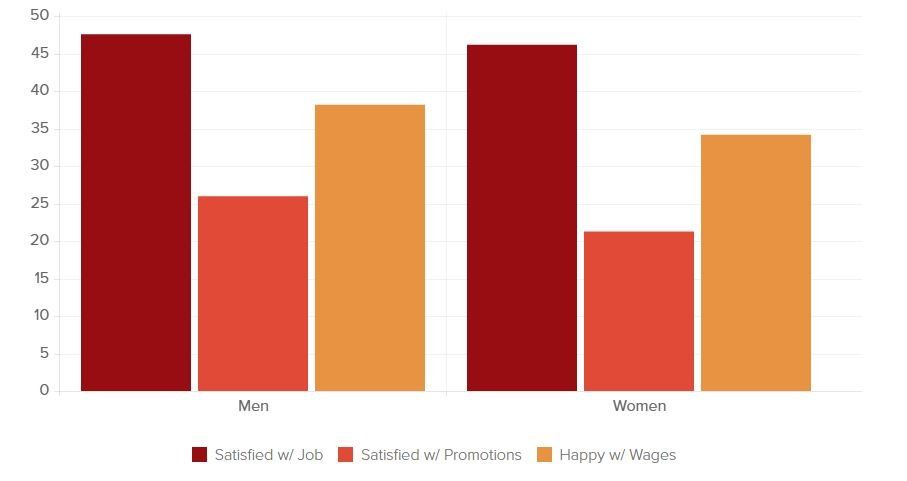
Critics vs Good Criticism
You have to ignore critics. I truly believe that no matter what any of us do in life, someone is going to tell us we can’t do it. I mean, would we even have an Olympics if anyone listened to the nay-sayers and do-nothings of this world? Just look at the graph above. Look at how many people aren't satisfied with their job. Do what you love; and do what you think you’ve been called to do, whatever that calling might be. That being said—and I will leave this as the wrap up to my first installment of writing tips—do listen to and pay attention to criticism.
Our Stories, Our Babies
Our stories are our babies. I have children. Some of you have children. We take pride in our children. And when people are critical of them, we get defensive. They are, after all, a part of us.
We have this story, this idea, this adventure, this movie playing in our head and it hurts sometimes when someone doesn’t like it or understand it. But there is probably a very good reason for that. Let me say that most fiction is genre specific, as you may well know, so if you write romance and someone who typically reads mystery tells you they didn’t get your romance novel, they didn’t like it, or whatever else, you might take that with a grain of salt—unless you are trying to cross over into a mystery-romance genre. But if someone who reads a ton of romance tells you they didn’t get your story, you might want to listen up. You don’t have to change your story, but it may be a plot issue or a character issue or a formatting issue. Just like a good parent who would listen to other parents who have great kids, as authors we would want to listen to other authors and purveyors of our genre.

I recently received my first two star review, and I have received several three star reviews. I am not necessarily going to change my story because of them, but they do serve as signals or alerts that there are some people out there that might have issues with my style, my story, my method of writing. One of the worst things we can do as authors is be so stubborn about our story that we are unwilling to listen—in essence, we are deaf—to good criticism, criticism that wants to help us get better.
Again, you don’t want to change your story. That is one of the reasons why I left the publishing company I was with before I self-published. They wanted to change my story. Don’t get me wrong. They gave me some great criticism that changed me as a writer for the better, but I had to be open to that criticism. Remember, you know your story. It’s yours. You live it in your head, replaying it like a movie. Your audience doesn’t know it, but you want them to get to know it, live it just like you. So listen to your audience. Let them help you convey your message and your story as best and most effectively as possible.

Until next time, start writing your story and HAPPY READING!!!
Make sure you visit Christopher Patterson’s website at www.christopher-patterson.com and also make sure you sign up for his monthly newsletter where you can keep up to date with what’s going on in his world, his articles and blogs, get access to freebies, and experience promotional material. You can sign up for Christopher Patterson’s email newsletter at http://eepurl.com/b5AUa1
Adams, S. (2014, 06 20). Most Americans Are Unhappy At Work. Forbes.com. Retrieved from http://www.forbes.com/sites/susanadams/2014/06/20/most-americans-are-unhappy-at-work/#623c350f5862
Dietrich, W. (2013, 05 04). The Writer's Odds of Success. TheHuffingtonPost.com. Retrieved from http://www.huffingtonpost.com/william-dietrich/the-writers-odds-of-succe_b_2806611.html
Goldberg, J. T. (2011, 05 26). 200 Million Americans Want to Publish Books, But Can They? Publishing Perspectives. Retrieved from http://publishingperspectives.com/2011/05/200-million-americans-want-to-publish-books/#.V7m114-cHIU
Chris' Blog



